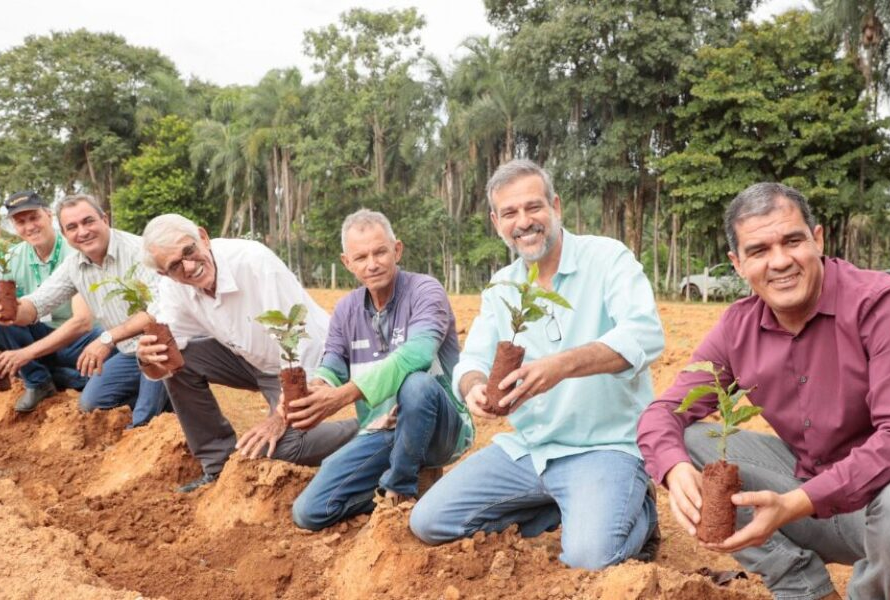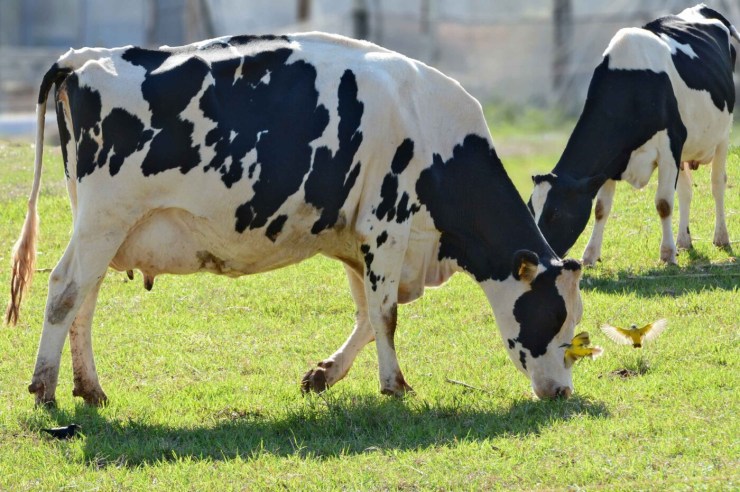The Goiás Agricultural Defense Agency (Agrodefesa) has intensified its health education and agricultural inspection work to prevent the entry of the quarantine pest Amaranthus palmeri, popularly known as caruru-palmeri or caruru-gigante, into Goiás. The intention is to provide guidance to rural producers and redouble attention throughout the state, since the Ministry of Agriculture and Livestock (Mapa) announced last Friday (03/07) the detection of the pest in the municipality of Guiratinga, in Mato Grosso, near the border with the state of Goiás.
Amaranthus palmeri is considered an aggressive weed that can cause major losses in the productive potential of the crop where it spreads. Because it is extremely resistant to conventional herbicides, it develops quickly and can reach heights of over two meters. When in competition with a crop, throughout its development cycle, it can cause productivity losses in corn of over 91%; 79% in soybeans; and 77% in cotton, according to published research in the area.
To date, there have been no records of the quarantine pest in Goiás soil, despite detection in states that border Goiás, such as Mato Grosso and Mato Grosso do Sul. Since 2015, when its appearance in Mato Grosso crops was recorded, Agrodefesa has adopted as part of its activities the carrying out of phytosanitary inspections in crops, mainly in areas cultivated with large crops such as soybeans, beans, corn and cotton.
Agrodefesa's Plant Health Manager, Daniela Rézio, explains that to strengthen actions and ensure that Amaranthus palmeri does not enter Goiás territory, the Agency's state agricultural inspectors are vigilant, especially regarding the movement of agricultural machinery and implements from the states of Mato Grosso and Mato Grosso do Sul. "In the event of interception of such machinery, the focus is to assess hygiene conditions, since tractors, harvesters and other agricultural implements, without proper cleaning or with soil or plant residues, can spread the pest," she adds.
It also reinforces the role of producers in properly sanitizing machinery and implements that are received in the State, as well as circulation between properties, to avoid the introduction of quarantine and economically important pests.
At the time the first specimens of Amaranthus palmeri were identified in Brazil, studies indicated that its introduction was made possible by the loan of machinery from Argentina, a country that, along with the United States, is one of the main countries affected by its presence in crops. “Producers also need to help prevent the pest by properly sanitizing their machinery and agricultural implements whenever they move from one area to another. And it is very important to notify Agrodefesa if you suspect the presence of the plant on your property or nearby properties, since the seeds can easily spread the weed,” he adds.
Amaranthus palmeri is easily spread, which is due to the production of large volumes of seeds. Scientific research has shown that a single plant, during the flowering period, can produce 100,000 to 1 million seeds. Therefore, in states where the pest is present, it is recommended that plants in the flowering stage be incinerated after being uprooted within the parameters. Plants that are not in this stage should be eliminated simply by extracting and discarding them.
Surveillance work
The president of Agrodefesa, José Ricardo Caixeta Ramos, emphasizes that to ensure plant health in the state, the Agency always carries out active surveillance work, precisely to prevent the introduction of pests that could cause damage to crops and also to the economy of Goiás. “Our team, especially agronomists, monitors all types of risks that could cause damage to agriculture in Goiás. They are qualified professionals who carry out field work, planning actions and phytosanitary measures, inspections, surveillance and health education to strengthen agricultural defense in the state,” he emphasizes.




